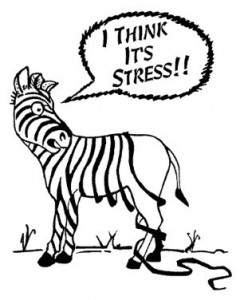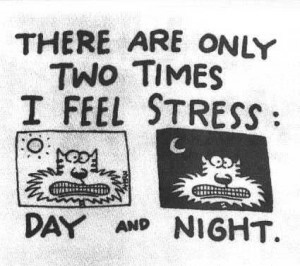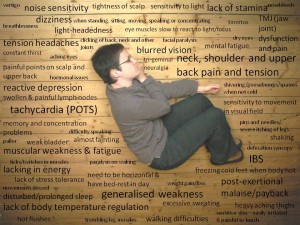 When you have reached the limits of your abilities to cope with stress in your life, you may still be embarrassed, scared or so overwhelmed that you start taking part in escapist behaviors to try and feel better. For teens this may be skipping school, running away from home. For both adults and teens there may be a turning to drugs and alcohol, lying to people to avoid responsibility and it can get so bad that some feel so hopeless, that they may take to hurting themselves physically or even having suicidal ideation.
When you have reached the limits of your abilities to cope with stress in your life, you may still be embarrassed, scared or so overwhelmed that you start taking part in escapist behaviors to try and feel better. For teens this may be skipping school, running away from home. For both adults and teens there may be a turning to drugs and alcohol, lying to people to avoid responsibility and it can get so bad that some feel so hopeless, that they may take to hurting themselves physically or even having suicidal ideation.
Obviously any and all of these behaviors can bring on even more problems that can last a lifetime. Short term techniques to try to deal with stress are never as helpful as learning how to really deal with the issues or problems that are making us feel so overwhelmed. We will continue to talk about stress among children and teens in upcoming articles, but if you are a teen or child, just know that talking to an adult that you trust is a great first step and one that you should take for your own well being. If you are an adult being aware that our children, even the ones that seem to have it all together, may be feeling the pressures of their schedule or workload along with all the social pressures that teens have.
Being able to listen without judging, and knowing that you do not have to have all the answers is key to gaining the confidence of the child or teen. Recognizing the signs of stress and coping skills that they may be using can help us to get a head start on avoiding larger problems in the future. Coping with stress is something that all of us can do and we will discuss some of the basics in future articles.


 Everyone of us, teens or adults have felt our body and mind react to stress. Some people will tell you that they hold it in and keep their feelings to themselves, while others wear their feelings on their sleeves. Either way we know when we are stressed out.
Everyone of us, teens or adults have felt our body and mind react to stress. Some people will tell you that they hold it in and keep their feelings to themselves, while others wear their feelings on their sleeves. Either way we know when we are stressed out.

